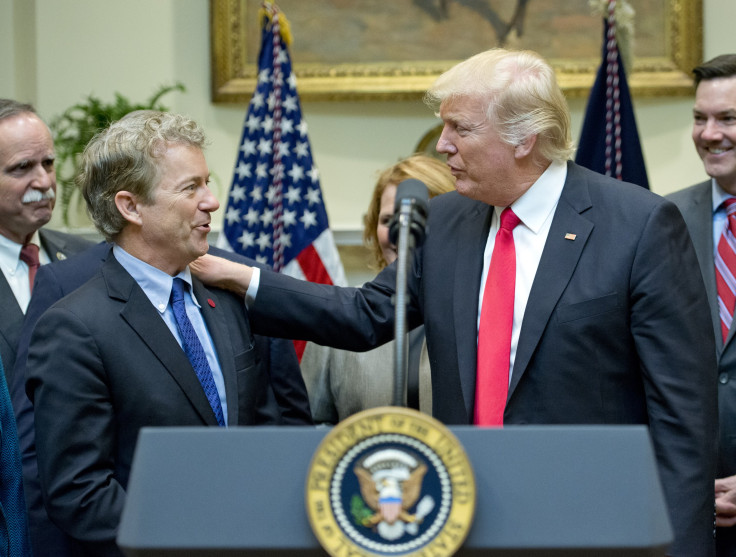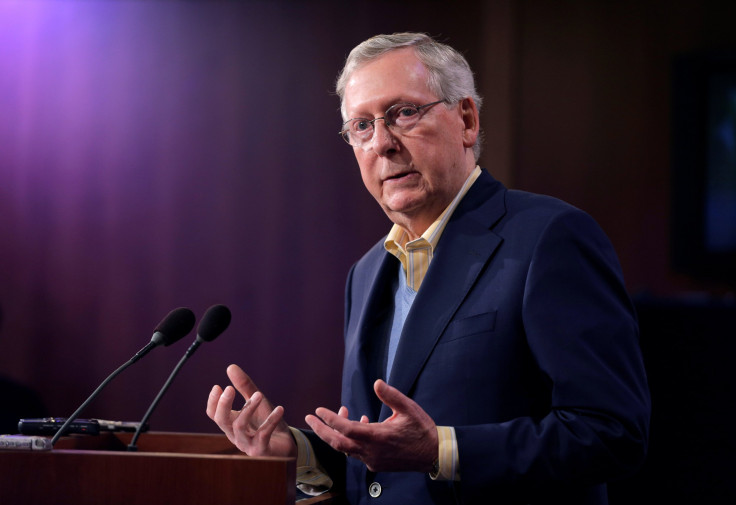What Would Happen If Republicans Repeal Obamacare But Don't Replace It?

After failing to bring the Senate to a vote to repeal and replace the Affordable Care Act (ACA) this week, Republicans, including President Donald Trump, have argued that the best path forward is to repeal Obamacare now and then delay replacing the legislation until a later date.
However, this path would be risky on two fronts. From an economics standpoint, it would risk throwing the health care industry into bankruptcy. Politically, the repealers would then be blamed for the volatility and any downturn in the industry.
A score from the Congressional Budget Office (CBO) predicted that 32 million people would lose healthcare insurance by 2026 if parts of Obamacare were repealed without a replacement put in place. By comparison, the CBO predicted that 22 million people would lose health care if the latest version of the Republican bill to replace Obamacare were passed by the Senate.
READ: Trump Approval Ratings: Low Support Amid Controversial Tweets And Senate Delaying Healthcare Vote
On "Fox and Friends" Friday, Republican Sen. Ben Sasse of Nebraska recommended for "maximum repeal" first and then wants to have a conversation about "real replacement." An avid watcher of "Fox and Friends," President Trump took to Twitter after the Sasse interview and advocated for a similar position.
If Republican Senators are unable to pass what they are working on now, they should immediately REPEAL, and then REPLACE at a later date!
— Donald J. Trump (@realDonaldTrump) June 30, 2017
Sen. Rand Paul of Kentucky, who was one of the Republican senators that rejected the Senate's latest proposed bill, sent a tweet supporting the President's strategy.
I have spoken to @realDonaldTrump & Senate leadership about this and agree. Let's keep our word to repeal then work on replacing right away.
— Senator Rand Paul (@RandPaul) June 30, 2017
In January, Paul seemed to warn about the exact dangers that he's now advocating, particularly the political dangers to repealing Obamacare without a follow-through plan to replace it.
"If Congress fails to vote on a replacement at the same time as repeal, the repealers risk assuming the blame for the continued unraveling of Obamacare. For mark my words, Obamacare will continue to unravel and wreak havoc for years to come," he wrote in an op-ed published by Rare.

READ: The Future Of Health Care In The US: How Replacing Obamacare Would Affect Women
Republican leaders are aware of the risks that the president and some of the party's lawmakers floated by suggesting not to replace the health care legislation at the same time as its repealed. Senate Majority Leader Mitch McConnell rejected the strategy when he told a gathering of Republicans in Elizabethtown, Kentucky, that "failure has to be possible or you can't have success."
"We are going to stick with that path" McConnell said in response to a question about the president's tweet, according to a report by ABC.
"It's not easy making American great again, is it," McConnell rhetorically asked before comparing the Senate's negotiations to a Rubik's Cube, saying that he's "trying to figure out how to twist the dials to get to 50 to replace this with something better."
© Copyright IBTimes 2024. All rights reserved.





















